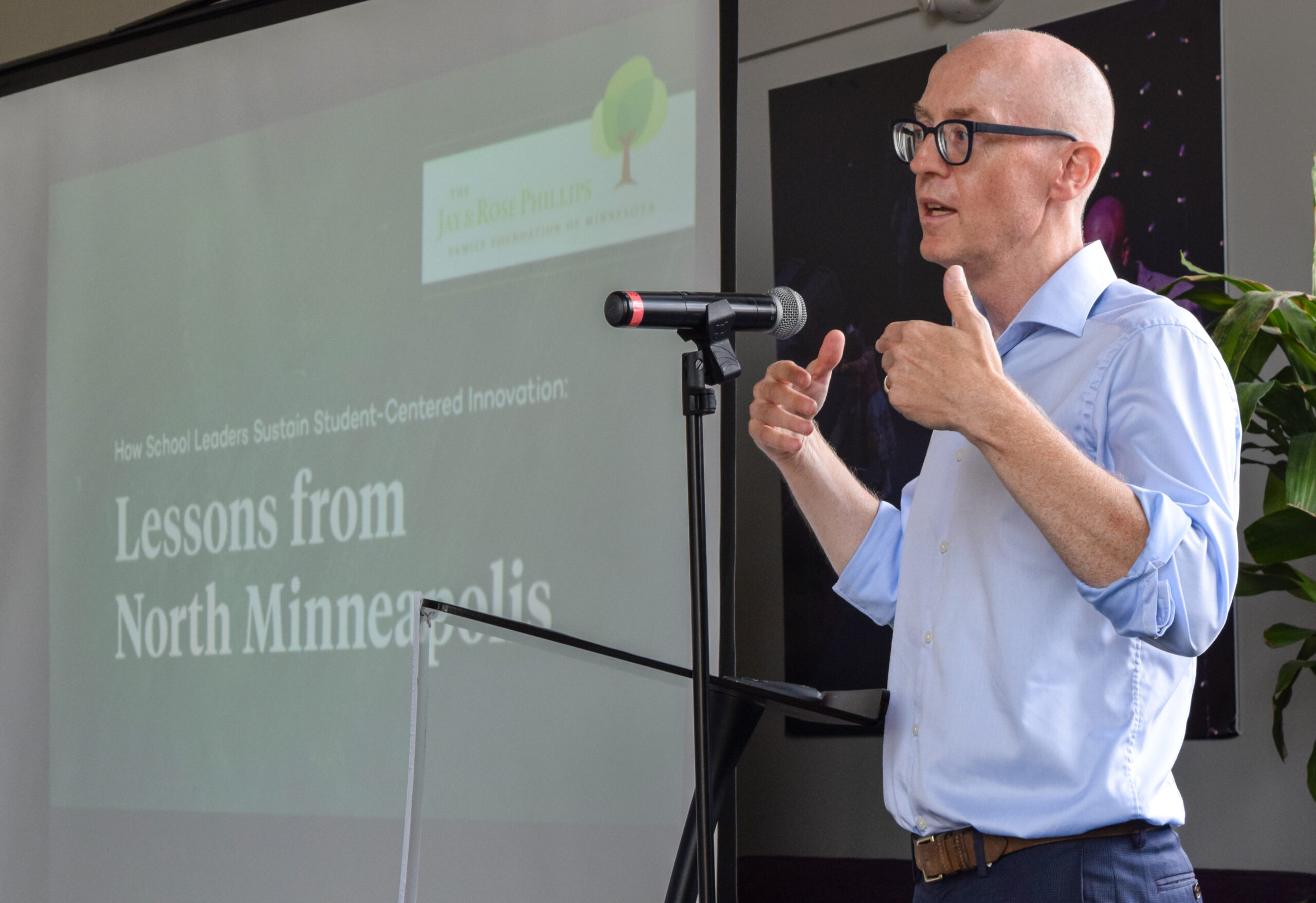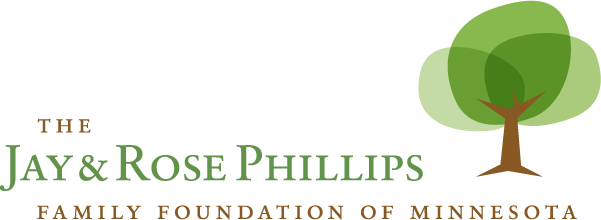
Last month, the Jay and Rose Phillips Family Foundation gathered with 45 educators, funders, and policy advocates to reflect on our six years of support for Patrick Henry High School and Olson Middle School. The event blended thoughtful presentations by researchers and heartfelt reflections from school staff. For me—and I think for many others—it was an important moment of celebration and closure for a project that began with audacious hope, persevered through the dreadful years of distance learning, and resulted in work that continues to improve the lives of Northside educators and their students.
Here’s a brief overview of the work we funded at these two schools, and some remarks from the event on July 25:
Fueling bold ideas at two schools
In the fall of 2017, the Phillips Family Foundation invited Northside public schools to apply for planning grants to explore their bold ideas for improving student engagement and repairing relationships between adults and young people. Olson Middle School and Patrick Henry High School were selected to receive significant multiyear support from the Foundation.
At Patrick Henry High School, we supported the Community Connected Academy. This insulated cohort of roughly 100 11th and 12th graders uses project-based learning, internships, and a consistent social justice focus to create a relevant and engaging learning environment.
At Olson Middle School, we supported a project called My Story/My Brilliance, enabling the school to hire two additional counselors and provide essential professional development to all of Olson’s teachers. This investment allowed Olson to implement new curriculum elements addressing students’ social-emotional needs, including a schoolwide journaling project.

3 takeaways from last month’s event
- The schools appreciated that we trusted them to lead.
The work that the Phillips Family Foundation funded was conceived, implemented, and led by teams of extraordinary school staff members. Despite skepticism from peers, they believed students needed and deserved better educational experiences. Staff and school leaders commented on how this opportunity increased their sense of agency and leadership as educators.

“I think it’s super-important to build teacher leadership,” said Yusuf Abdullah, former principal of Patrick Henry High School. In the four years that he oversaw the creation and rollout of the Community Connected Academy, teacher leadership in the building “just developed and blossomed,” he said.
“This experience deeply changed how I see myself as an educator and as a leader.”
Arielle Rocca, co-founder of CCA
- Investing in developmental evaluation alongside the grants provided schools with valuable support.
Throughout this six-year initiative, Phillips invested in an ongoing, improvement-focused evaluation process at both Northside schools. ACT Research served as our able evaluators, meeting regularly with school staff to make sense of student data and adjust program strategies. For a foundation to pair a grant with significant resources for developmental evaluation is not just unusual:
“It’s unheard of, frankly, in K-12 education.”
Katie Pekel, Executive Director of Education Leadership at the University of Minnesota’s College of Education and Human Development.
School leaders told us that this investment proved critical in helping them keep their teams focused, motivated, and on track, even as unanticipated events (Hello Covid!) threatened to derail their plans.
- Despite historic challenges, new programming at both schools benefited students and staff.
Another benefit of having evaluators embedded in this work from the beginning was that we were able to track changes in student outcomes and collect qualitative feedback at the two schools.
“Educational change is really hard, there are some things we can do that can have a significant impact on climate and outcomes in a short period of time.”
Mark Lewis, ACT Research
It’s important to note that both schools have faced extraordinary challenges in the past six years. In addition to nearly two years of distance learning during the pandemic, they have weathered repeated budget cuts as well as a district-wide strike. At Olson, Covid’s onset—along with an influx of new staff and students and the departure of the school’s longstanding principal—created such a challenging environment that My Story/My Brilliance never relaunched in the 2020-2021 academic year.
Despite the significant setbacks, the programming at both schools showed promising results, particularly in the period before Covid descended. For example, at Henry, administrative data and student interviews showed that Community Connected Academy students reported much higher levels of connection and enjoyment at school; they also graduated at a higher rate than similar students at Henry. In the year after Olson launched My Story/My Brilliance in Fall 2018, teacher retention increased and student course failure rates decreased dramatically. Students and staff also gave glowing qualitative feedback about the heavy investment in counselors.

With the conclusion of these grants to Olson and Henry, the Phillips Family Foundation is now exploring new ways to support Northside youth and families. We are proud of the ways these projects positively impacted students, and of the leadership development we saw among the staff who led them.
You can read ACT Research’s full report on the Phillips Family Foundation’s Northside school grants here. Dr. Pekel’s presentation, including links to the Minnesota Principals Survey, can be found here.
